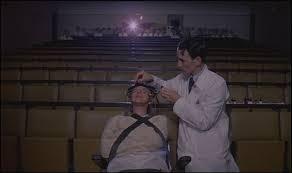Therapy Goers Are Not Weak
Everyone needs help with some things and most people are not capable to deal with complex subjects on their own.
Seeking help for your problems means you’re taking action. Asking for help often requires more strength than passively staying stuck.
72
169 reads
CURATED FROM
IDEAS CURATED BY
The idea is part of this collection:
Learn more about health with this collection
How to showcase your skills and experience
How to answer common interview questions
How to make a good first impression
Related collections
Similar ideas to Therapy Goers Are Not Weak
Forced To See a Therapist
This misconception comes from assuming people don’t go to therapy by choice, when in fact most go of their own will. They want help and are willing to deal with the stigma of seeking treatment for mental health problems.
Those who need to be forced to go to therapy often need psyc...
Getting ready for 1:1 conversation
The most productive one-on-ones have some kind of structure, which requires you to do some prep beforehand. Basically, don’t just show up and chat—you’ll lose precious time in rambling conversations.
- Is this time-sensitive? If it’s urgent, don’t wait for your next meet...
How to study 📚🦋💻📑
Get organized
- Carry a homework planner at all times. Entering homework, projects, tests and assignments as soon as they are assigned will make sure they aren’t forgotten about.
Pay attention in class
- It’s important to concentrate and avoid distractions when t...
Read & Learn
20x Faster
without
deepstash
with
deepstash
with
deepstash
Personalized microlearning
—
100+ Learning Journeys
—
Access to 200,000+ ideas
—
Access to the mobile app
—
Unlimited idea saving
—
—
Unlimited history
—
—
Unlimited listening to ideas
—
—
Downloading & offline access
—
—
Supercharge your mind with one idea per day
Enter your email and spend 1 minute every day to learn something new.
I agree to receive email updates

